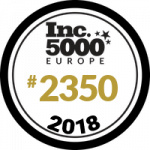Summary In the contemporary business environment, digital procurement is becoming increasingly popular and sought after by businesses around the world. The relationships …
Leveraging procurement automation in contemporary businesses
The COVID-19 pandemic was an eye-opener for organisations around the world, regardless of industry, about the fragility of their supply chains and the lack of strategy for bounce-back.
These bottlenecks were further superimposed by the unstable geopolitical conditions and massive economic downturns that followed.
As companies slowly emerge from this chaos, they face a new and increasingly challenging landscape that requires high operational standards to succeed.
This is where procurement automation comes into play. Procurement is already a core operational function in many companies regardless of industry. Automating this vital process is an effective way to enhance the resilience of the procurement function and improve its efficiency.
An increasing number of companies across the board have been leveraging various automation solutions in their operations owing to the number of benefits it brings in terms of operational efficiency, cost reduction, and profitability.
In fact, companies that implemented some form of automation in their procurement processes saw a 25% reduction in procurement costs and a 15% reduction in procurement cycle time.
Here is how contemporary companies benefit from focusing on automation technologies in their procurement functions.
How does procurement automation improve operations in companies?
Businesses today face enough challenges in procurement, such as supplier selection and management, high procurement costs, lack of actionable data, volatile risk landscape, and decentralised procurement operations.
Here is how automation can contribute to addressing these challenges and improving the overall operational efficiency of procurement.

Improve supply chain visibility
Automating procurement processes immediately provides a much more comprehensive view of the supply chain. This allows businesses to identify bottlenecks and areas for improvement that need to be addressed, while also enabling them to consolidate suppliers and drive a more efficient procurement process.


Facilitate data-driven decision-making
Digitalisation naturally comes with a much more structured approach to data collection and processing. This enables companies to make key decisions much faster with a lot more information in hand that can not only affect the supply chain but also other core processes like manufacturing and logistics.

Enhance agility and responsiveness
The process of automating the procurement function also provides an extensive amount of information on suppliers, logistics partners, and other stakeholders in procurement. This results in companies being able to adapt faster to changing market conditions and respond to market changes more effectively.


Increase the quality of optimisation efforts
Procurement automation facilitates more accurate planning and optimisation of core business processes, resulting in a faster time-to-market for product and service offerings—offering a competitive advantage. This results in the overall improvement of productivity, manufacturing efficiency, and service quality.
Automate your procurement function with Kronos Group’s expertise
Kronos Group provides informed solutions for sustainable business through best-in-class procurement consulting services.
Our group of procurement professionals is dedicated to uplifting your procurement function with proven solutions for procurement automation that are guided by decades of expertise and industry best practices.
Kronos Group’s expertise in procurement consulting will help you build the ideal digital supply chain ecosystem, combining digital supply chain control tools and a digitally enabled supply chain to enhance operational efficiency, reduce risks, and drive growth in a hyper-competitive, volatile marketplace.
Fighting the effects of inflation with sourcing and procurement consultants
Stay up-to-date on the latest insights on procurement, finance, and project management.
Summary Strategic procurement has become a necessity in today’s business world and organisations try to remain competitive. Having the right procurement strategies …
Summary The world of consulting has been undergoing a massive transformation and management consulting jobs are experiencing the impacts of these changes. …
FAQ
This refers to the process of identifying and implementing automated processes to eligible aspects of the procurement function with the end goal of improving its overall effectiveness and efficiency.
The 4 types of procurement systems are:
- Direct procurement: Purchase of raw materials that contribute to the end product.
- Indirect procurement: Purchase of materials that contribute to day-to-day operations without directly contributing to the end product creation.
- Goods procurement: Purchase of physical items like raw materials and office supplies.
- Services procurement: Purchase of people-based services like contractors, vendors, and leasing software.
Solutions for the automation of procurement can be any software solution that offers the capability to streamline and optimise procurement processes like purchase requisitions, sourcing, invoice management, payments, and contract management.












